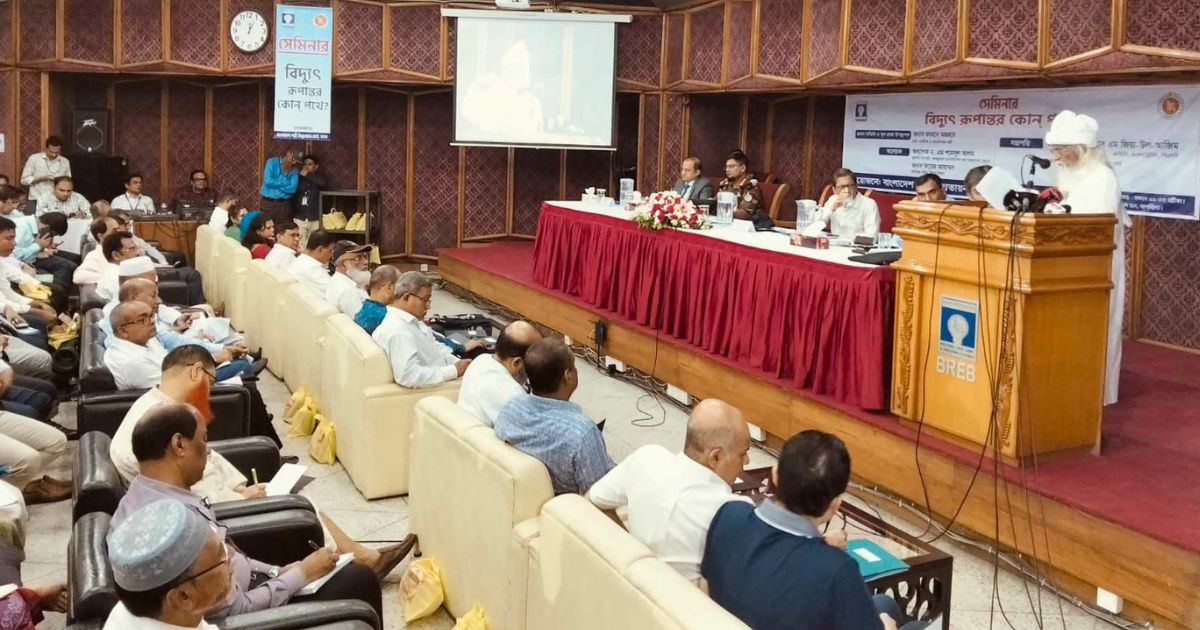Constitutionalise energy security rights: Farhad Mazhar
Daily Sun Report, Dhaka
Published: 04 Nov 2024

Photo: Daily Sun
Poet, philosopher, and human rights activist Farhad Mazhar has demanded that the assurance of power and energy security be recognised as a constitutional right in Bangladesh.
While addressing a seminar titled “What Path for Energy Transformation?” held at the Bangladesh Rural Electrification Board (BREB) headquarters on Monday, Mazhar emphasised that access to electricity is an inherent, natural, and civil right of the people.
He urged for the incorporation of energy security into the constitution and advocated for an environmentally friendly energy policy that prioritises renewable energy sources.
He highlighted the need for ensuring fair access to energy rights for the populace and proposed the establishment of a National Public Energy Fund.
Noting the challenges faced by farmers – many of whom lack access to electricity and gas, he affirmed their resilience and well-being despite these hardships.
Describing threats to electricity supply as acts of sabotage, Mazhar called for institutional reforms in the energy sector and stressed the importance of accountability at every administrative level.
He proposed improved governance and decentralisation to resolve conflicts between BREB and local cooperatives and to mitigate public unrest.
Mazhar also pointed out external influences that exacerbate tensions and insisted on the need for a new constitutional framework grounded in public sovereignty.
He rejected previous authoritarian practices, emphasising the necessity for dialogue in addressing issues.
Critiquing past government policies, he stated that they operated under the guise of socialism while prioritising corporate interests over individual rights. He called for a rejection of this “new level economy,” which he described as a significant barrier to progress.
Mazhar stressed that all administrative levels should be governed by elected representatives and underscored the necessity of placing the people at the centre of policy-making and implementation processes, warning that excluding the public would amount to fascism.

